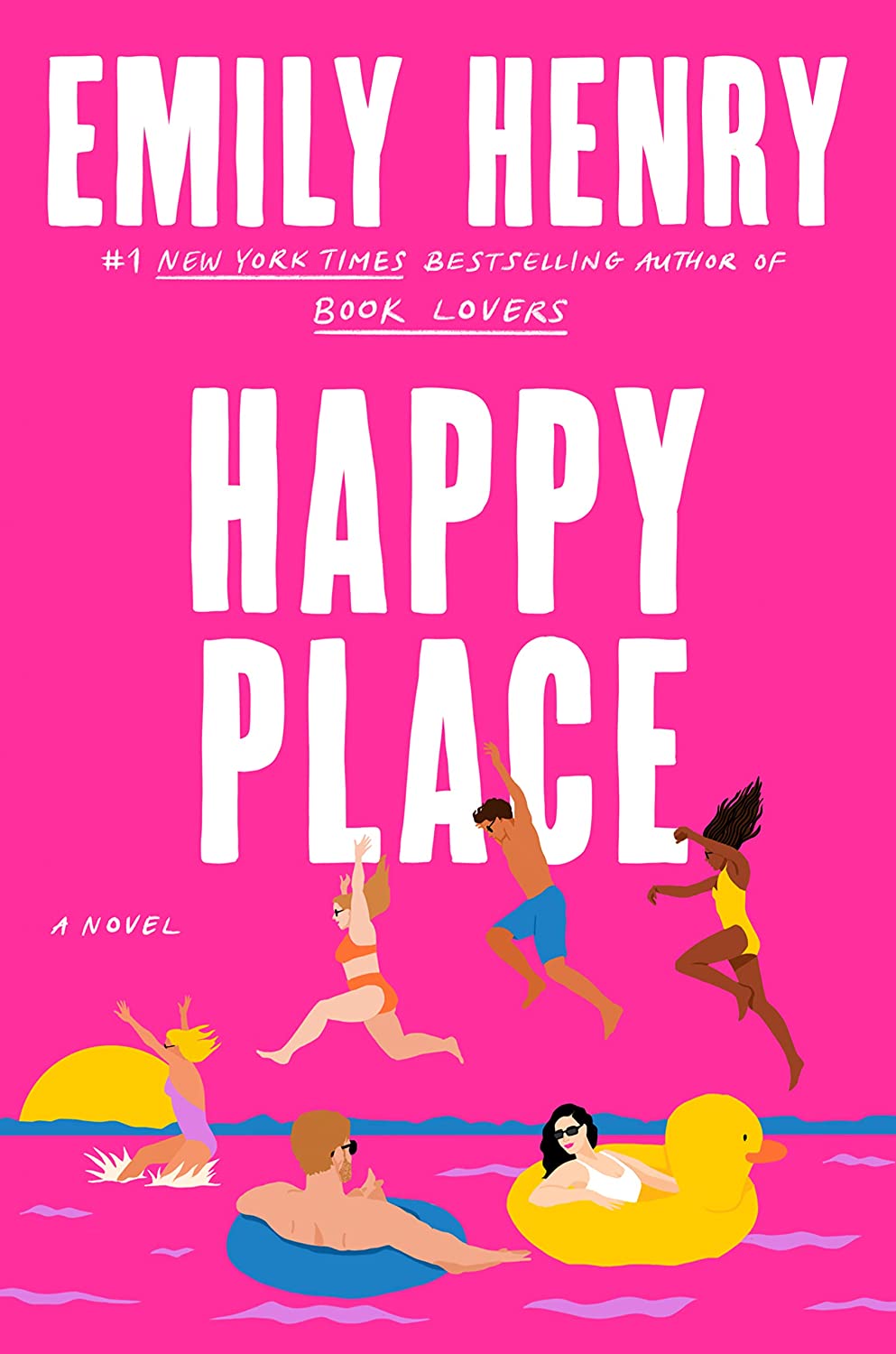My first read of Summer 2023 was Emily Henry’s Happy Place. This was my first Emily Henry novel, and I enjoyed her vividly descriptive, nostalgic writing style. Her story centers on Harriet and Wyn, college sweethearts who broke off their engagement and are attempting to hide it from their closest friends. This becomes challenging, however, when their tight-knit friend group all ends up in a Maine cottage for a week — the same cottage in which they spent many college summers. Their broken relationship becomes increasingly hard to hide in the midst of their nostalgic Maine escapades, and Harriet and Wyn are forced to confront their true feelings for each other. In the end, they must decide which paths they want to pursue in life — and if they want to pursue those together or apart.
Henry chooses to write in flashbacks, slowly revealing how Harriet and Wyn’s relationship developed in college and fell apart after. This kept me engaged with the novel, as I kept wanting to uncover more details. Though the novel focuses on Harriet and Wyn, Henry also does an excellent job of detailing the close, familial bond of college friends and how it can be challenging to maintain that closeness after college. She clearly understands and empathizes with millennials, who are in that current stage of life after college (myself included). Moreover, on a personal note, the setting in Maine was a favorite aspect of this novel. My family has traveled to the same cottage in Maine for several summers, and I could picture it in my mind as Harriet and her friends described the many happy memories they’ve shared in Maine. It’s certainly my happy place.
*Spoiler Alert*
The aspect that I enjoyed the least about Happy Place was the ending. Yes, I found myself rooting for Wyn and Harriet throughout the whole novel and was delighted to see them together again in the end. However, it felt rather unrealistic. Harriet’s character development focuses on her struggle with communicating her true feelings — largely because she is a compulsive people-pleaser. In the end, she chooses the path that will most please herself: moving to Montana to be with Wyn and opening a pottery studio. This might sound like a lovely life (and I don’t doubt that it is), but I struggled with the selfishness of her choice, after her parents worked tirelessly to put her through medical school. And, realistically, how is making pottery going to pay off medical school bills?! I might sound too pragmatic, but there’s something to be said for making wise financial choices.
Overall, I would give Happy Place a 3.5/5 star rating. Probably not a re-read for me, but I would recommend it to fellow millennials and hopeless romantics!
